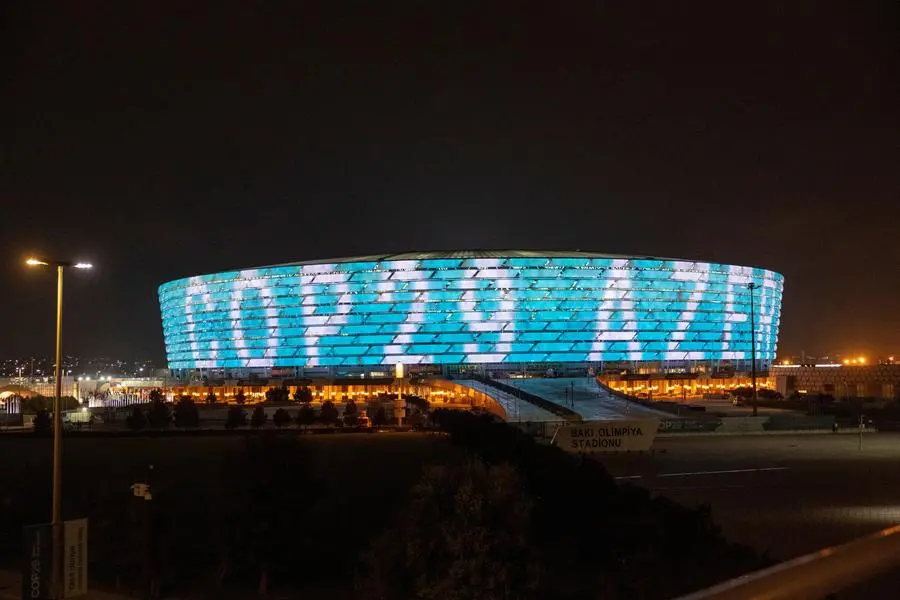PHOTO
The African Group of Negotiators (AGN) has proposed a New Collective Quantified Goal (NCQG) of $1.3 trillion per year by 2030.
Led by AGN chairperson Ali Mohamed, who is also Kenya’s Special Envoy for Climate Change, Africa’s demands have in the last four days underscored the inequity of a crisis its people largely did not create, but one they are severely bearing the brunt of.
As the continent faces escalating climate impacts, African leaders and delegates have united in Baku with calls for transformative, binding, and accessible climate finance.
In every room, every plenary discussion, every hurriedly convened hurdle, they are demanding that this commitment must go beyond empty promises and address the urgent adaptation and mitigation needs of their communities.
Mr Mohamed set the tone on Tuesday with a clear and unwavering stance, stating at a briefing that, “Africa’s needs are non-negotiable.”“This is a matter of survival, not just for us, but for the planet,” said Mr Mohamed. “We need climate finance that is reliable, actionable, and just.”His words were echoed by Kenya’s Prime Cabinet Secretary Musalia Mudavadi, Uganda’s Minister for Water and Environment Sam Cheptoris, and South Africa’s Minister of Forestry, Fisheries, and the Environment Barbara Creecy—all joining voices to demand a climate finance mechanism that delivers real results and accountability.
Read: Kenya, Tanzania reach ‘power-sharing’ deal to lead Africa climate negotiationsTheir frustrations are marked with demands for a move away from pledges to accountability, and they have spent this week here telling developed countries that the $100 billion annual pledge they made nearly a decade ago remains unmet.
That goal, repeatedly missed and inadequately tracked, fell far short of the needs that African countries face on the ground, they have said.“Our communities are drowning in floods, drying up from droughts, and struggling to cope with erratic climate patterns,” said Mr Mudavadi.“This crisis was not of our making, yet we are paying the price. It is only fair that those responsible step up.”Essential lifelineThe $1.3 trillion annual demand, though seen as ambitious by some, reflects the true cost of adapting to climate change, building resilience, and investing in renewable energy on the continent. For Africa, this is not just a wish-list figure, but an essential lifeline for survival.
Mr Mohamed added that “the NCQG is a tool to correct the failures of the past”, and that “it demands that developed countries move beyond vague commitments”.“It’s time for accountability, transparency, and delivery on climate finance,” he said.
Uganda’s environment minister Sam Cheptoris reinforced this need for justice, stating: “For too long, climate finance has been treated like a charity handout rather than a rightful obligation. It’s time we stop begging for what should be a shared global responsibility.”Mr Cheptoris highlighted Uganda’s ongoing challenges with droughts that have severely affected agriculture, the backbone of its economy. “Our farmers are on the front lines of this crisis. They need immediate support, not a complex maze of loans and conditionalities."The African negotiators are calling for climate finance that is heavily rooted in public finance, with a focus on grants and concessional funds.
Read: New climate finance goal must have adaptation targetThis demand stems from a shared frustration with the debt burdens many African nations already carry. Instead, they want financing that builds resilience without adding to their fiscal challenges.
Ms Creecy, echoed these sentiments, saying: “We cannot talk about a just transition while African nations are trapped in debt cycles. Climate finance must uplift our economies, not bury them deeper.”South Africa, with its deep coal dependence, is grappling with a complex energy transition, and Ms Creecy pointed out that securing affordable and sustainable financing is essential for countries that face both economic and social challenges in shifting away from fossil fuels.“The global financial system must change,” Ms Creecy insisted. “Multilateral development banks and other financial institutions need to step up, provide affordable financing, and allow African countries to transition without sinking into more debt.”Many global banks and financial institutions have largely given the Baku talks a wide berth due to concerns over unfulfilled climate finance commitments, accountability issues, and the growing scrutiny of their investments in fossil fuels.
Despite pledges for climate action, many financial institutions have yet to align fully with the Paris Agreement, making their presence at COP29 uncomfortable amid mounting criticism.
That, perhaps, is one of the reasons why Africa’s leaders attending this summit have been particularly vocal about the systemic barriers that prevent them from accessing climate finance.
Currently, many African countries are entangled in bureaucratic processes that delay urgent funding. The AGN’s NCQG proposal calls for streamlined access to funds, reducing red tape, and ensuring a more efficient flow of resources to adaptation and resilience projects on the ground.
While the African delegation claims it has made considerable progress in convincing world leaders to put their money where their mouths are, there are still fears here that, like in many other COPs, they might not walk out of these talks with a full pot. Developed nations have expressed some willingness to discuss climate finance, but they remain cautious.
This week there have been some discussions around blended finance models that could leverage both public and private resources, but critics argue that these mechanisms may not provide the urgent, grant-based support needed by African countries.
And, for these nations, the push for highly concessional finance—rather than loans or market-based instruments—remains a key point of contention. © Copyright 2022 Nation Media Group. All Rights Reserved. Provided by SyndiGate Media Inc. (Syndigate.info).
Bernard Mwinzi





















